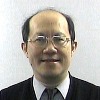In interesting political developments, Hu Jintao has named Hu Chunhua as his successor’s successor writes Willy Lam.
Speculation of a rift between President Hu Jintao and Vice-President Xi Jinping notwithstanding, it is all but certain that Xi, the most senior Fifth-Generation leader, will succeed his boss as Chinese Communist Party General Secretary at the 18th CCP Congress scheduled for 2012.
The 56-year-old Xi’s pre-eminence was underscored when the Politburo decided to send him to greet US President Barack Obama upon the latter’s arrival at Beijing Airport last December. President Hu, however, has sprung a surprise on Xi – and China watchers the world over – by in effect naming his successor’s successor.
After finishing two terms as Party General Secretary and State President, Xi will likely hand over power to Hu Chunhua, 46, the “core” of the Sixth- Generation leadership – a reference to cadres born in the 1960s – at the 20th Party Congress in 2022.
The year 2022 seems a long way away. Yet it is a good old CCP tradition for the leadership to do long-term planning particularly regarding the critical issue of succession. After all, Hu Jintao himself first caught the world’s attention in 1992, when the then-49- year-old Party Secretary of Tibet was unexpectedly promoted to the supreme Politburo Standing Committee by late patriarch Deng Xiaoping.
Having been thus named the “core” of the Fourth-Generation leadership, Hu’s status as heir apparent to ex-president Jiang Zemin was assured. However, at the 17th CCP Congress in 2007, Jiang played the role of kingmaker by naming President Hu’s successor. It was due to Jiang’s patronage that Xi, then Party Secretary of Shanghai and considered a dark horse candidate, was made the highest ranked Fifth-Generation cadre in the PBSC.
Who then is Hu Chunhua, who, by virtue of having been appointed Party Secretary of the Inner Mongolia Autonomous Region in December 2009 has become the most senior 6th Generation official in the Communist Youth League Faction headed by President Hu?
While unrelated, the two Hus have very close career patterns. Both graduated from elite colleges in Beijing (the older Hu from Tsinghua University and the younger Hu from Peking University) where they developed leadership skills by becoming presidents of the students’ union. Both were Party bosses of the CYL. Perhaps most significantly, while the older Hu worked in Tibet from 1988 to 1992, the President’s protégé spent a total of 21 years in the climatically and politically challenging autonomous region. Apart from having served in senior slots in Tibet, Hu Chunhua was governor of Hebei Province for two years before his elevation to party chief of Inner Mongolia. It is significant that unlike many other members of China’s 6th Generation cadres, who have fancy degrees from big-name universities in the United States and Europe, Hu Chunhua has had little exposure to the West. While little is known about his political orientation, the career party apparatchik is believed to be a firm believer in upholding the virtues and norms of “socialism with Chinese characteristics.”
He is thus a politically correct neophyte who can be trusted to uphold the CCP’s “perennial ruling party” status. Like his patron, the younger Hu believes in harsh tactics against ethnic minorities such as Tibetans and Uighurs. Moreover, his having stayed in Tibet for two decades shows that he is tough both physically and mentally. By contrast, President Hu got seriously sick one year after his arrival in Lhasa in 1988.
On economic matters, the 6th Generation leader is expected to continue the longstanding open-door policy initiated by Deng. Hu has already indicated that his first task as the No. 1 official of Inner Mongolia is to attract foreign capital and to restructure the provincial economy. There are, however, already black marks on the younger Hu’s record. Having been a senior Tibet official for more than a decade, he may have to bear some political responsibility for the exacerbation of ethnic strife in the restive region. More recently, he was Hebei governor during the infamous tainted-milk scandal, which originated in the province. The disaster resulted in the death of six babies and ill health for hundreds of thousands of other young children. Largely thanks to his connections with the top leadership, the then-Hebei governor did not have to take the rap for this mishap.
Also in early December, the CCP named another young turk with great potentials, 46- year-old Agriculture Minister Sun Zhengcai, as Party Secretary of north-eastern Jilin Province. A respected agronomist, Sun has no connections with the CYL Faction. However, Sun, who is deemed a protégé of Premier Wen Jiabao’s, is expected to be another influential member of the 6th Generation leadership.
Some Beijing observers even think that Sun could be a prime minister for the 2020s. The current Politburo has already started plans for the wholesale changing of the guard at the 18th CCP Congress of 2012, when most members of the Fourth-Generation leadership will be retiring. Both Hu and Sun have emerged as odds-on favourites for induction into the all-powerful PBSC at this pivotal conclave. ■

















